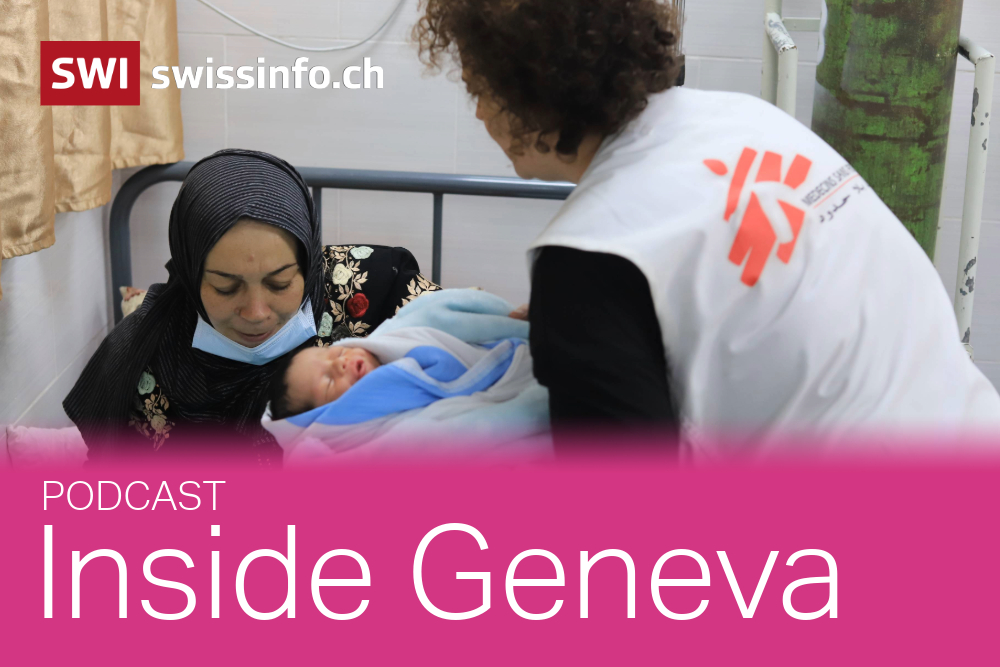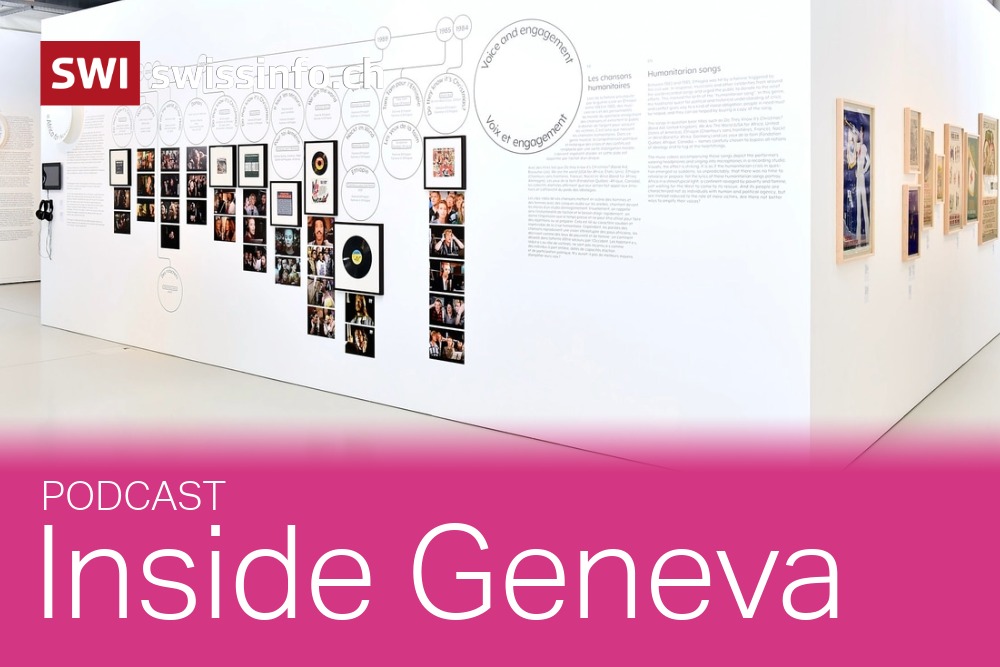
Newsletter Summer profile: Rieke Hayes, ICRC Physiotherapist
How do you get a severely injured patient back on their feet, without the mobility aids that are the norm for most of us who been unfortunate enough to have a car accident and fracture a leg, or a tumble skiing and dislocate a knee or shoulder?
How do you get out of bed, with a serious spinal injury, if your bed is the floor? If your injury has led to paraplegia, how do you move around without a wheelchair?
These are all challenges that Inside Geneva’s guest this week, Rieke Hayes of the International Committee of the Red Cross (ICRC), has to face. She is a physiotherapist, and she regularly works in conflict zones where the luxury of hi-tech western medicine is unavailable.
Rieke is from Ireland, and originally got into physiotherapy on a school work experience programme. Once qualified, she remembers “I think I went into physio thinking I would have a little clinic, do outpatients, you know back pain, neck pain. Turns out I really did not enjoy that setting at all once I was in it.”
Instead, she became interested in working in humanitarian crises, starting with a spinal injury clinic in Bangladesh. She arrived there from a cold grey Scotland, where she had been completing a training course, and, at first, found the 100% humidity in Bangladesh almost unbearable.
“I remember standing in the shower at 3 am, crying, because I just couldn’t sleep. And I had frogs in my room…”

More
Inside Geneva’s final summer profile: ICRC physiotherapist Rieke Hayes
Next stop North Korea
But she loved the work, and that first overseas job led to a contract with the ICRC. She returned to Ireland, expecting to have to wait a few months before getting a posting. Instead, within a few days “I got this e-mail, ‘would you be willing to go to DPRK in two weeks’ time?’ I didn’t {at first} know what DPRK was, and then: yes, North Korea, and I went of course, yes.”
Her time there was fascinating, working in an ICRC rehabilitation centre, providing North Koreans with artificial limbs, getting them accustomed to them, and making sure that, once the limbs were fitted, the patients were mobile, and able to return home, and even to work. Among her patients, a pair of twins who had been lost in a forest for days during bitter cold, and lost limbs due to frostbite.
We don’t hear much about everyday life in North Korea, so listeners will be fascinated to here Rieke’s account it; she was there for a year, she even got her driving license there. And she recounted to me, with a grin, the — somewhat familiar — names of Pyongyang’s fast food chains: Burger Kim, and Kim Fried Chicken.
Gaza
More recently, Rieke has been working in Gaza, with a succession of postings there since October 7 2023. Here she says that, unfortunately, each time she has been there, conditions have become worse. Now she fears for her patients, as the assault on Gaza City continues.
A key challenge is the lack of mobility aids; although humanitarian agencies have ordered deliveries of them, they do not arrive. Instead, Rieke and her colleagues have had to make crutches out of wooden pallets. But for some patients, crutches are simply not enough.
“It’s very complicated for someone with a spinal injury to get off the ground, and mobilising with a walking frame if they had one,” she explains. “But you don’t have a walking frame, you don’t have a wheelchair, and you don’t have a raised bed. You’re in a tent, and you might be sharing it with 20 relatives. You might still have wounds that you need follow up care for. Good luck trying to keep them clean.”

More
Summer profiles: challenges in humanitarian aid with MSF’s Secretary General
Nevertheless, Rieke has patients she knows she has helped. One young man had a severe leg fracture from shrapnel, both his arms were broken too, and his abdomen torn open. His leg had to be shortened to repair the damage, and he needed a colostomy. He was just 19, and had dreamed of becoming an engineer in Kurdistan.
He was being cared for by his brother, who was then shot in the neck and shoulder trying to access food at a distribution centre. Rieke recalls that during her June posting, her hospital was regularly overwhelmed with casualties, up to 200 people at a time suffering gunshot wounds, who told medical staff they had been trying to get to a food distribution centre.
But, on Rieke’s last posting in early September, she saw that young men and his brother again. “He was walking. He’s got his crutches, the crutches that we made out of pallets. You can see him limping because he’s got the leg length shortening. But he got his colonoscopy reversed. So now he’s got his abdomen closed finally.”
“So to see him walking alongside his brother, the two walking wounded, was quite a relief actually.”
What really worries Rieke, back in Ireland now but watching the evacuation orders from Gaza City, are the many people with mobility issues. How can they flee?
“They rely wholly on their family members to carry them. And that’s the grim reality of it. We don’t have wheelchairs to offer.”

More
Inside Geneva’s Summer Profiles: the Red Cross Museum
And even the patients that are back on their feet again, Rieke reminds me, are being discharged into a war zone. “Many patients that leave our hospital; I say we did a good job, we’ve done the best we can. I don’t know if they are still alive, or if they’re still walking, but we do what we can. But they are very dependent on friends, family. If they have any left of course.”
To hear the full fascinating conversation, listen to Inside Geneva.
vm

In compliance with the JTI standards
More: SWI swissinfo.ch certified by the Journalism Trust Initiative
































You can find an overview of ongoing debates with our journalists here . Please join us!
If you want to start a conversation about a topic raised in this article or want to report factual errors, email us at english@swissinfo.ch.